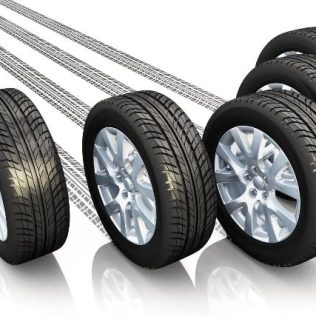Redspot Car Rentals are committed to tyre safety – our business and customer satisfaction depend on it. We also believe that everyone who owns a car should also be aware of tyre safety and the importance it plays in your car’s performance.
The holiday season in particular is associated with large increases in private travel, longer trip distances and more travel in rural environments.
Research shows that a quarter of motorists wait until their tyres are illegal before replacing them. That could mean over 4.6 million illegal and dangerous tyres on our roads. Did you know that 1.1 million cars fail registration due to tyre defects?
Why are tread depth and tyre pressure important?
Adequate tread depth helps remove water from between the tyre and road surface giving a better grip. If tyres are over or under-inflated then handling and grip will worsen, and cause unpredictable handling.
Tyres with insufficient air are also more likely to suffer from a sudden loss of pressure and can damage the tyre edges and wheel rim. Over inflation reduces the contact area, giving less grip and more wear on the tread centre.
How should you check your tyres?
Tyres should be checked at least once a month, and before any long journey. The legal requirement for cars is 1.5mm across three-quarters of the tread width around the whole circumference of the tyre. However, it’s recommended to change them if they get below 3mm, to maintain optimum handling and safety. Check at least three locations around each tyre, and remember to look at both the inner and outer edges. Check for abrasions, cuts or objects lodged in the rubber which can cause a blow-out. If you’re not sure, then get them looked at by a professional.
The correct tyre pressure for your vehicle should be noted in the manual, or printed on the ledge of the driver’s door. You can also check online. Correct tyre pressure will vary depending on the load, so if you’re planning a long journey with a heavily laden car then you should adjust it accordingly.
Regular checks and maintenance are simple to do. They will save you money, keep you on the right side of the law, and will help keep you, your passengers and other road users safe on the road.
